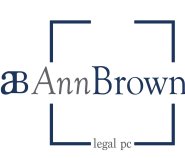Many of us know what to do at the scene of an accident, but what should you do in the following weeks to deal with the aftermath? In addition to coping with the disruption to your daily life and treating any personal injury or trauma, talking with insurance companies is an important part of the process. Here are a few tips to understand the benefits and downfalls of speaking with the other driver’s insurance company.
Before talking to the other driver’s insurance:
Decide whether you’d like to hire an attorney. While it’s not always necessary, a car accident injury attorney can help you to determine whether you can get financial compensation for your accident. (To understand what kind of damages you may be entitled to, check out our blog post here.) Attorneys can also guide or streamline communication with insurance companies if you feel stressed or unsure about doing it yourself.
Speak with your insurance carrier and understand your coverage. Ask your insurance provider what your policy covers, and how it might help to cover the damages from the accident.
When talking to the other driver’s insurance, DO:
Talk about the related property damage. It’s appropriate to discuss the damage to your vehicle and other property involved in the accident, as it may be covered by the insurance company. If you haven’t already, make sure to take photos as evidence of the damage.
Exercise caution. Be strategic about any other information you choose to disclose. Be honest when sharing basic information about the accident and property damage, but don’t share more information than necessary. If you are unsure about what information is safe to share, consult a car accident injury attorney with your specific questions.
When talking to the other driver’s insurance, DON’T:
Give opinions or try to place blame. If you decide to speak to the other driver’s insurance without a car accident injury attorney, do your best to only share pertinent facts. It is not necessary to elaborate with personal opinions about who or what caused the accident.
Share information about your injuries or medical bills. Sharing about your personal injuries without consulting a personal injury attorney is risky, as insurance companies will often leverage this kind of information to reduce their losses.
Consent to recording a statement about your injuries or medical bills. There are almost never benefits to talking about your personal injuries without the counsel of a personal injury attorney.
If you were in a car accident and need assistance navigating insurance, please call our office
at (319) 826-2250 for a free initial consultation.
For more general advice on what to do after a car or motorcycle accident, click here.
The above information is meant to be helpful, but is not meant to replace the legal advice of an attorney with whom you have an attorney-client relationship.

